RWE is advancing two major offshore wind projects in Europe. These are the 1.6 GW Nordseecluster in the German North Sea and the 1.1 GW Thor project off Denmark’s west coast. Together, these developments represent more than 2.7 GW of planned capacity and continue to underline RWE’s role as one of the region’s leading renewable energy developers. Both projects are also expected to play a key role in supporting Europe’s energy transition targets by delivering large-scale, clean electricity generation to the grid.
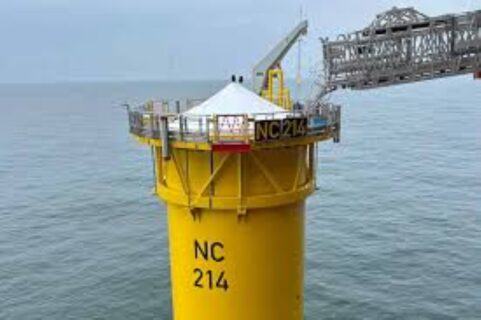
Norges Bank’s €1.4B Investment in RWE’s Nordseecluster and Thor Offshore Wind Projects
Reported June 4, 2025 – RWE and the Norges Bank Investment Management (NBIM) close a €1.4 billion, 49% share purchase agreement for the Nordseecluster and Thor offshore wind projects on June 4, 2025. The deal was first announced on March 31, 2025 was scheduled to close in Q3 2025.
The €1.4 billion investment to RWE’s Nordseecluster and Thor offshore wind projects comes at a critical time in their timelines. The two wind projects are also to progress with construction and commissioning without a hiccup.
Even with the close to half of total share stake sellout, RWE still leads the construction and operations for the projects. RWE also recently reached a milestone in Denmark’s largest offshore wind farm, Thor, on September 25, 2025, after installing all its 72 monopiles foundations. This opens the window for installation of secondary steel structures later this year, and turbine installation in 2026.
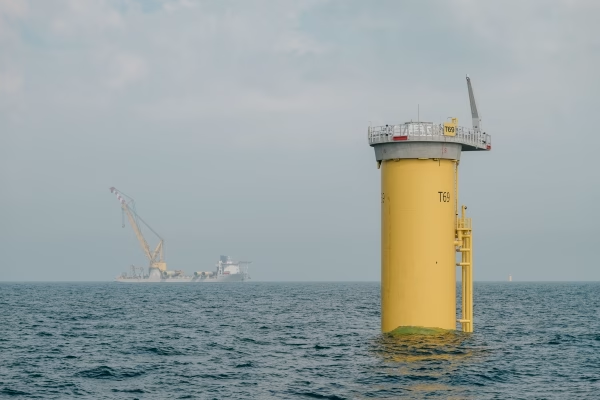
Thor and Nordseecluster Wind Project Factsheets
Nordseecluster Offshore Wind Project
Developer: RWE
Location: 50 km north of the island of Juist, Germany
Type: Offshore wind farm
Total capacity: 1,560 MW
Total turbine units: 104
Supplier: Vestas
Annual production capacity: 6,400 GWh
Electrical substation(s): 2 – both offshore
Construction phases: two
Wind farm commissioning date: 2029
Nordseecluster A (NC1 and NC2)
Total capacity: 660 MW
NC1 capacity: 225 MW
NC2 capacity: 435 MW
Start of turbine installation : 2026
Wind farm commissioning date: 2027
Nordseecluster B (NC3 and NC4)
Total capacity: 900 MW
NC3 capacity: 420 MW
NC4 capacity: 480 MW
Start of turbine installation: 2028
RWE and Amazon have also recently signed a 110 MW power purchase agreement (PPA) from Nordseecluster B offshore wind farm. The PPA deal supports the multinational tech company’s commitment to achieve net-zero carbon operations by 2040. It also builds on a broader 2025 framework previously signed by the two companies.
Thor Offshore Wind Project
Developer: RWE
Location: 22 km off the west coast of Jutland, Denmark
Type: Offshore wind farm
Capacity: 1,080 MW
Turbine units: 72
Supplier: Siemens Gamesa
Turbine type: 15MV
Electrical substation(s): 2 – offshore and onshore
Offshore turbine installation: 2026
Wind farm commissioning date: 2027
The Nordseecluster “The Power of Scale” Offshore Wind Project in Germany
Denoting the Nordseecluster off the eastern part of the German North Sea, the “Power of Scale” is the summation of wind farm sites in this area into one energy arsenal.
Of RWE’s offshore wind projects portfolio in Germany, the Nordseecluster will be the largest – both in size and scale. Raking up total production of around 6,400 GWh in a year, the wind farm will supply up to 1.6 million homes in Germany with green energy once commissioned.
Contractors
To see to Nordseecluster’s wind project success, the German multinational energy developer and its partners have on their side a host of key players in their own sectors.
Vestas will supply the 104 wind turbines for the Nordseecluster wind project. The V236-15.0 MW turbines will sweep over the German North Sea, arching over a diameter of around 115 meters, and each working at a capacity of 15 MW.
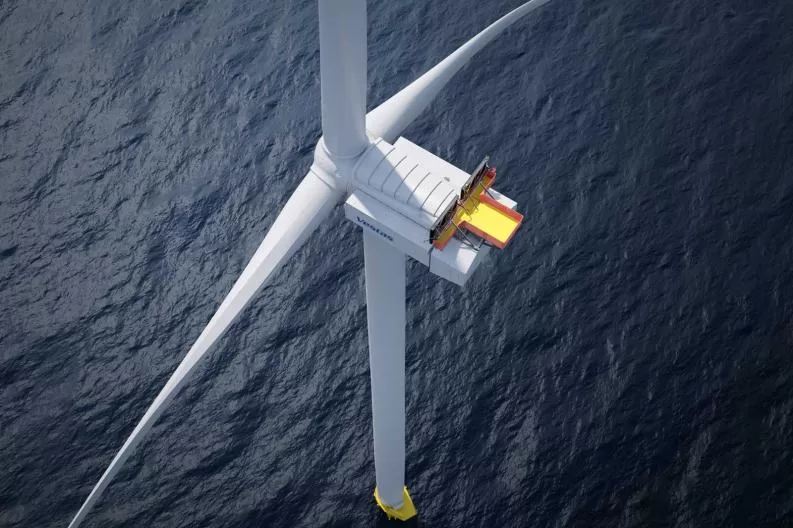
Transporting the more than 250 meters tall turbines to the wind farm site is Norway-based Havfram Wind. After standing on monopile foundations, manufactured and installed by Dajin Offshore and Dutch-based marine contractor, Van Oord, respectively, the turbines will be connected to the substations by cables from Hellenic Cables
Once installed, the wind farm will connect to two offshore electrical substations that will be installed by French-based Atlantique Offshore Energy.
The Bigger Picture
Alongside exclusively featuring in Germany’s Bight area, the Nordseecluster is also integral to the the country’s Exclusive Economic Zone (EEZ).
Also as part of the bigger picture is that painted clearly by the former CEO of RWE Offshore Wind, Sven Utermöhlen. “Every newly built wind farm increases green electricity supply, which is crucial for lower electricity prices in the long term”. Sven said during RWE’s securing of the Nordseecluster wind project through auction in August of 2023.
The Thor Offshore Wind Project in Denmark
Adding to Denmark’s longstanding offshore wind projects portfolio is RWE’s Thor wind farm. Being developed 22 kilometers from Thorsminde in the municipality of Holstebro, the Thor offshore wind farm in the Danish North Sea will be largest offshore wind farm in Denmark.
Contractors
Operating with 72 units of Siemens Gamesa‘s SG 14-236 DD offshore wind turbines, the wind farm will have a capacity of more than 1 GW once operational in 2027.
Of the 72 units of 266 meters tall turbines, 36 will have CO2-reducing steel, while 40 turbines will feature Siemens’ RecyclableBlade. These are the basis for Siemens’ GreenerTowers, a global sustainability initiative now practically pioneered by RWE.
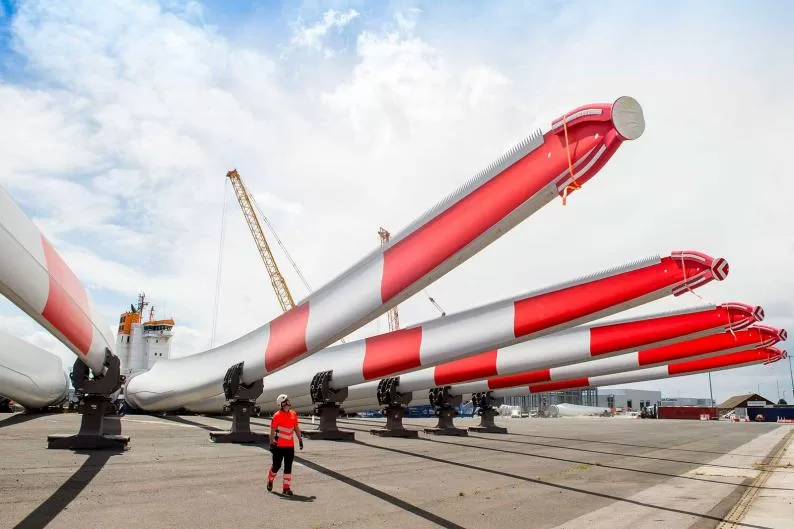
The turbines will stand on 1,500 tons, 100-meter tall monopile foundations designed by Wood Thilsted, and manufactured by Dajin Offshore and EEW SPC. Their onsite installation is to be done this year.
For the Thor wind farm to serve its projected more than 1 million households, the wind turbines will first be connected to an offshore electrical substation and then geared-up to transmission-level voltage. Additionally, the offshore substation will be built by HSM Offshore Energy, after it secured the Engineering, Procurement, and Construction (EPC) contract. The construction of the substation starts this year, while the commissioning is due 2026.
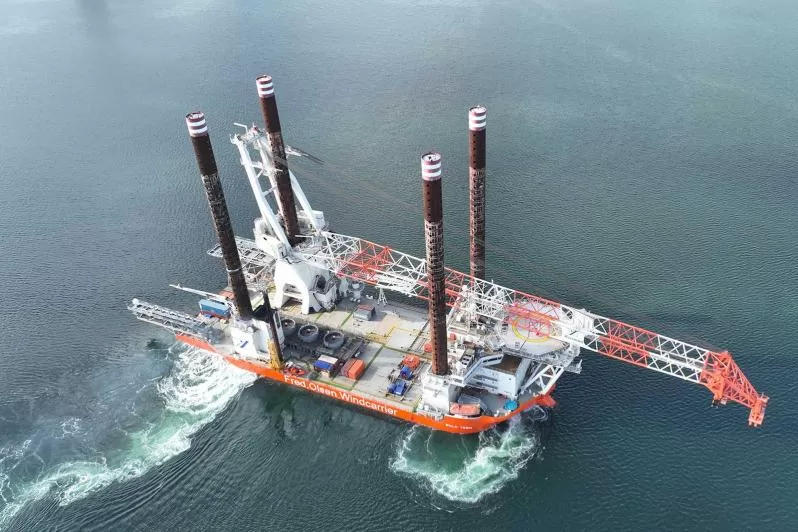
The next stop in the transmission line form the sea will be the new Volder Søndervang onshore substation, which will then connect to the Danish electricity grid. The Volder Søndervang onshore substation will be built by Siemens Energy. Handling the transmission cable package is Hellenic Cables and Jan De Nul Group JV.
The Bigger Picture
Being the first country in the world to tap into offshore wind energy back in 1991, Denmark’s journey to green energy transition proves outstanding. RWE has also set precedence in the country with another wind project, the Rødsand II. The Thor wind project will make a great stride in aligning Denmark’s commitment to the European Green Deal, and also help the country reduce its carbon emissions.
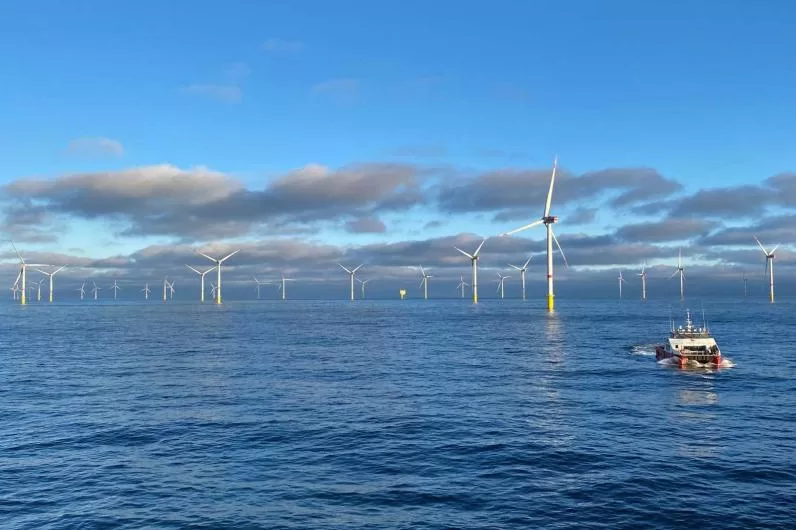
Leave a Reply